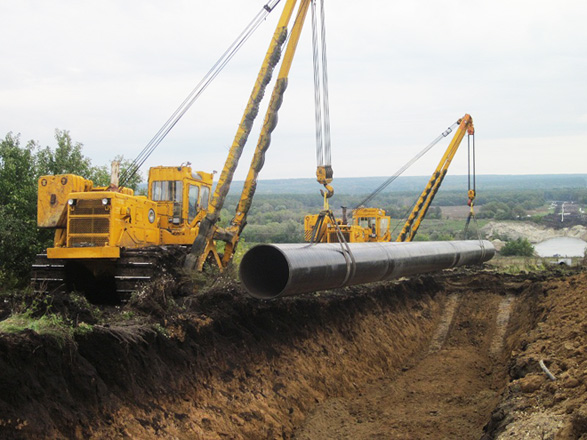Baku, Azerbaijan, March 31
By Elena Kosolapova - Trend: Despite the fact that the European Union is ready to resume talks with Russia over the South Stream gas pipeline, the project should fully comply with the rules of the Third Energy Package, independent European Researcher Andreas Marazis believes.
Meanwhile Russia's unwillingness to meet its requirements was the reason why the project was abandoned in the first place. The EU legislation, and the Third Energy Package in particular, prohibits companies from both owning the gas and operating the pipeline.
"On one hand, the European Union could resume talks with Russia on South Stream as European demand for Russian gas would increase in the long-term, but on the other hand, the EU's legislation (Third Energy Package) shows that the EU will not abandon its free-market values in exchange for cheap natural gas. Third-party access and unbundling are now prerequisites for any new pipeline project, as well as for every new contract for existing infrastructure that is to be signed after the expiration of existing ones and this is a reality that Russia will have to comply with," Marazis told Trend.
Russia suspended the South Stream project, designed to supply Russian gas to Europe bypassing Ukraine, in December 2014. Russia said "the EU's non-constructive position" was the reason for the project's suspension.
Then it was decided to build the Turkish Stream through the territory of Turkey, instead of the South Stream. But the project came under threat in late 2015 due to sharp deterioration of relations between Moscow and Ankara when Turkey shot down a Russian Su-24 bomber with two pilots on board.
In March EU's Ambassador to Russia Vygaudas Usackas said the European Union is ready to resume talks with Russia over the South Stream pipeline to southern Europe. Later some countries of the South-Eastern Europe expressed their interest for this project.
Marazis believes that discussions concerning the revival of South Stream, as it was initially planned, are high unlikely. Russia seems to be in favor of similar projects in Southeastern Europe, like Greece-Italy Transit Route, he said.
The analyst noted that there are two main reasons why Moscow might resume the project.
"One of them is the sharp deterioration of relations between Russia and Turkey following the downing of a Russian plane on November 24, 2015. The second reason is the recession in the Chinese economy, which has stalled the "Power of Siberia" project," he said.
Marazis said that Europe has been a key energy export market for Russia since the 1970s and this will be the case for the coming years as well. This has led to an increasing infrastructural inter-dependence, according to the expert.
The analyst believes that countries such as Greece and Italy that in February signed a memorandum of understanding to develop a pipeline route from Greece to Italy for Russian gas, will benefit from this deal. Bulgaria, which imports almost 80% of its natural gas from Russia will also benefit as well once it is connected.
Meanwhile he noted that the South Stream, Turkish Stream, and the "updated version" of South Stream, are all politically oriented projects specifically designed to avoid and isolate Ukraine.
"Right now the most attractive gas supply project is by far the Southern Gas Corridor which is expected to deliver 10 billion cubic meters to the European markets by 2020," Marazis said.
Today the Southern Gas Corridor is among the European Commission's priority energy projects, which aims at the diversification of the EU gas supply sources and routes. The project envisages transportation of 10 billion cubic meters of Azerbaijani gas from the Caspian Sea to Europe through Georgia and Turkey.
At the initial stage, the gas to be produced as part of the Stage 2 of development of Azerbaijan's Shah Deniz field is considered as the main source for the Southern Gas Corridor projects. As part of the Stage 2 of the Shah Deniz development, the gas will be exported to Turkey and European markets by expanding the South Caucasus Pipeline and the construction of Trans-Anatolian Natural Gas Pipeline and Trans-Adriatic Pipeline.
Marazis also said that in the list of so called "Project of Common Interests" regarding future energy infrastructure projects there is also the Eastring project, although it is in early negotiation phase.
Eastring will transport natural gas from different areas and alternative sources - in its first stage it will provide the Balkans and/or even Turkey with gas from the European gas market. In its final stage, when its bi-directional mode should be in place, Eastring will transit prospective Romanian Black Sea natural gas, Caspian and Middle East natural gas to Europe.
Edited by SI
Follow the author on Twitter:@E_Kosolapova






